| BrianRxm | Coins on Television | 104/126 |
| Route 66 - Eleven, the Hard Way (1961) |
Reno Nevada Mapes Hotel-Casino dice table silver dollars
| Prev | Back | Next |
This episode of the television program "Route 66" shows American silver dollars still in circulation in 1961
at the Reno Nevada Mapes Hotel-Casino.
"Route 66" was a one-hour television program which ran on the CBS television network from 1960 to 1964.
The programs were filmed on location, and provide a look at how some cities and towns appeared
in the early 1960's.
This episode is titled "Eleven, the Hard Way" and was first broadcast on April 7, 1961.
Tod and Buz are two young men travelling America in a Corvette sportscar are in Reno, Nevada.
They are hired to provide security for a professional gambler who has been recruited to win money
for a small Nevada mining town.
It was filmed in Nevada at the former mining town of Virginia City and at the Mapes Hotel-Casino in Reno.
The Mapes Hotel has since been torn down.
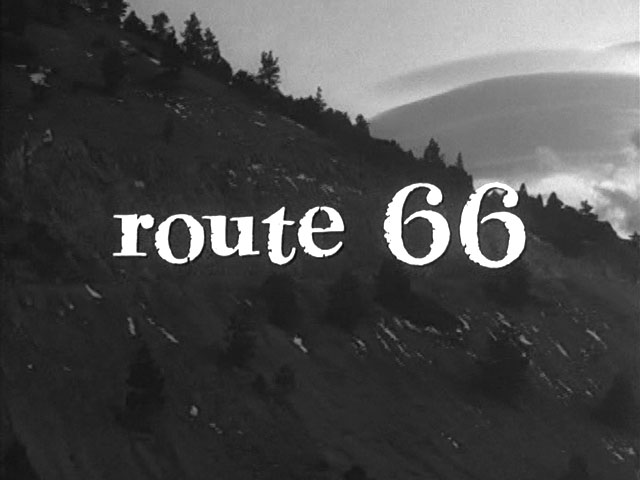
1. Program title
The small Nevada mining town of Broken Knee loses it's only industry when the mine closes.
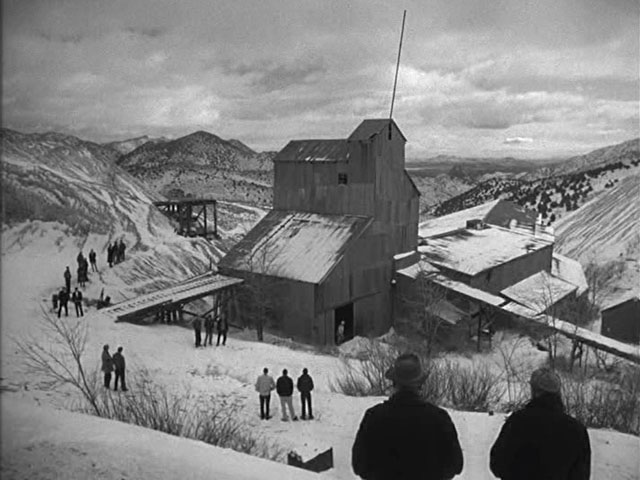
2. Broken Knee mine
The residents head for the town hall to hold a meeting to decide what to do.
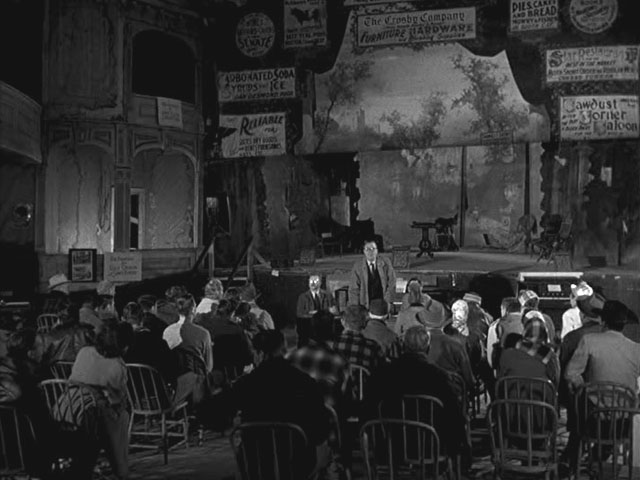
3. Town meeting
This scene was filmed at Virginia City's Piper's Opera House.
The city officials decide to remodel the town as a tourist attraction which they need $35,000 to do.
Walter Matthau has been living in the town for five years but hasn't made any friends.
He claims to have been a professional gambler and won large sums in the past.
The town council decide to entrusting $2400 to Walter to take to Reno to gamble.
The town treasurer Edward Andrews, who was against the scheme, and another official call on Walter.
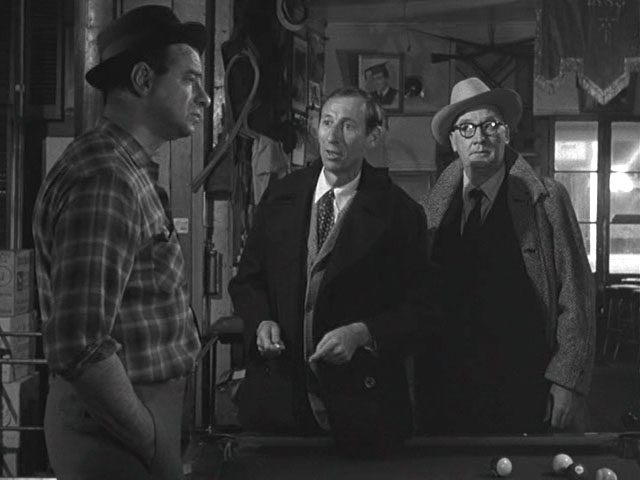
4. Asking Walter to help
Walter doesn't like the scheme and tells the men it is like shooting dice and throwing
"eleven the hard way" which means both dice having the same number and adding to eleven.
Walter finally agrees and he and Edward head for Reno with a suitcase full of cash.
They stop at a cafe near Reno for a meal and encounter Tod and Buz.
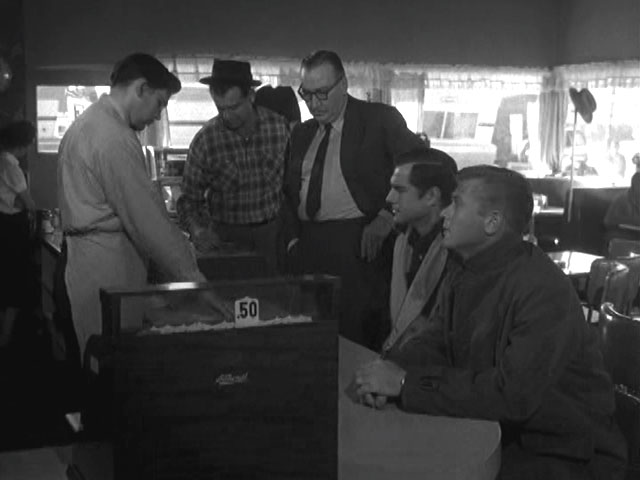
5. Walter, Edward, Buz, and Tod in cafe
Edward opens the suitcase to get a bill to pay for the meal.
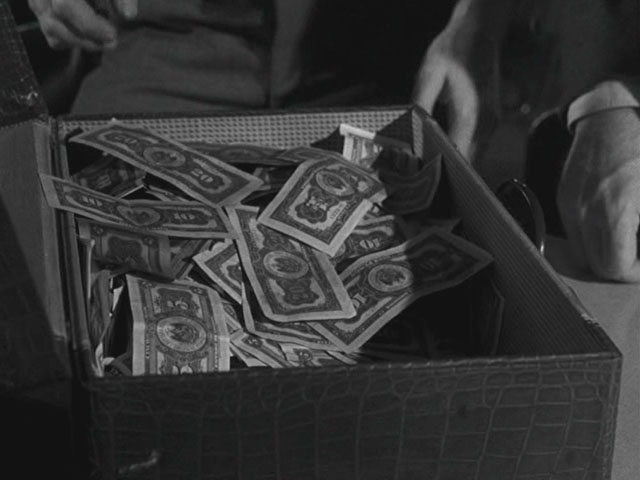
6. Suitcase full of money
The notes are standard Mexican Revolution motion picture stage money bills.
A Mexican Revolution Sonora note:
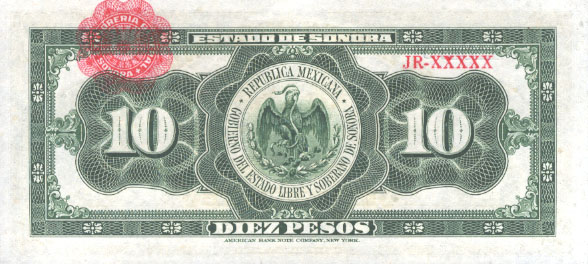
7. Mexican Revolution Sonora note (back)
For more information on these bills please visit: Mexican Revolution Currency Notes
Back to the program:
Four local men sitting in the cafe see an opportunity and accost Walter and Edward.
Tod and Buz thwart the robbery attempt and Edward hires the pair to watch Walter and the money.
They agree to meet at the Mapes Hotel-Casino in Reno.
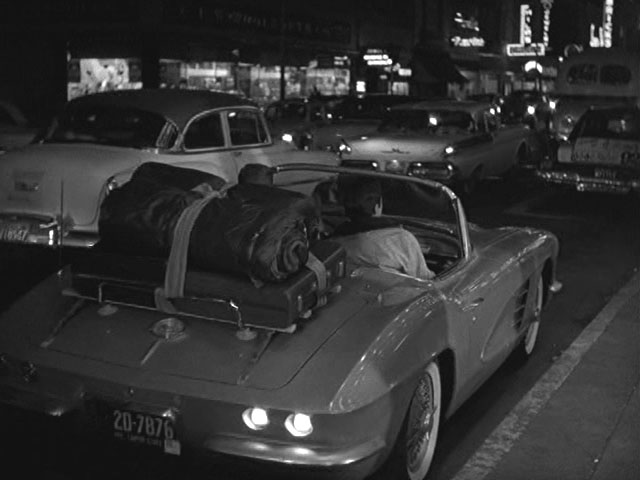
8. The lads arrive in Reno
They park their 1961 Corvette and head for the hotel.
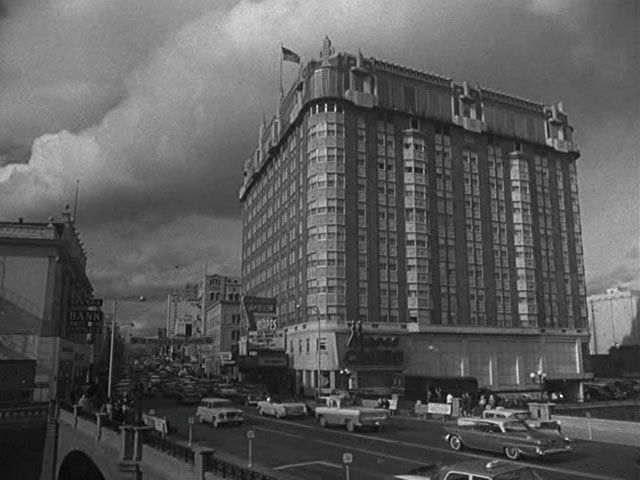
9. The Mapes Hotel-Casino
The Mapes Hotel-Casino opened in 1947 as the first hotel-casino combination in the country.
It closed in 1982 due to competition from larger and more modern casinos.
The building was torn down in 2000.
The next morning the men head for the casino.
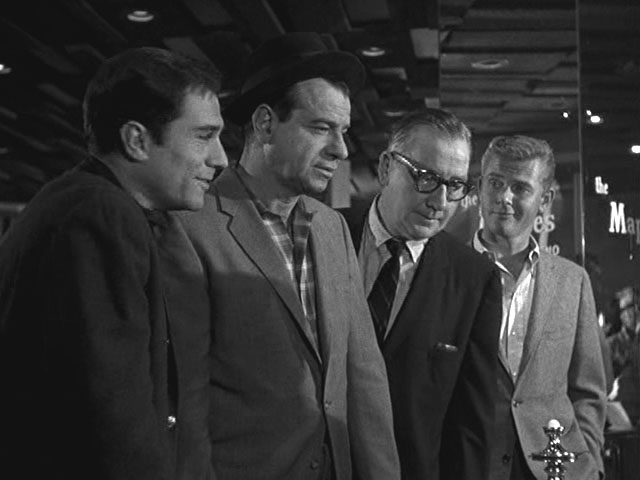
10. Buz, Walter, Edward, Tod ready for action
There are real silver dollars on the table, a sight not seen since 1964.
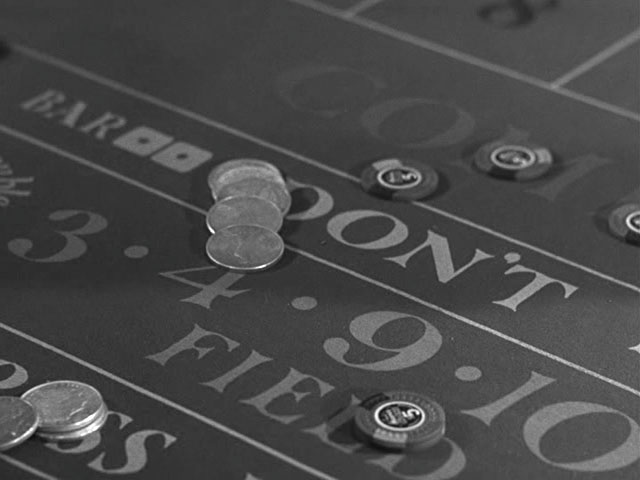
11. Silver dollars on table
Nevada casinos used real silver dollars then.
The ones on the table are of both types, Morgan (lower left) and Peace (center).
Morgan dollars were made from 1878 to 1904 and in 1921.
Peace dollars were made from 1921 to 1935.
Silver dollars remained in circulation until 1964 when the price of silver rose and
they became worth more for their silver than their face value.
Customers around the craps or dice table wait for Walter to start shooting (throwing the dice).
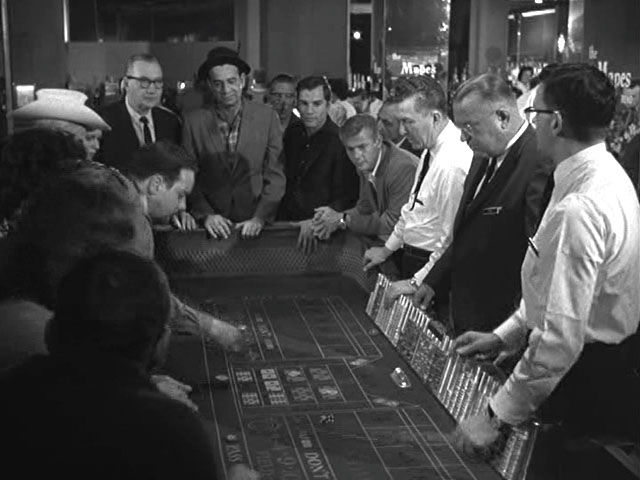
12. Walter ready to shoot
Casinos usually used chips for amounts above one dollar but cash was acceptable.
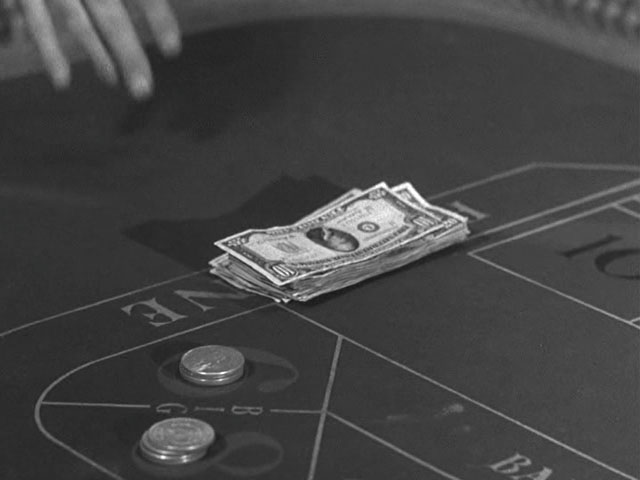
13. US $10 bills on casino table
These are real US $10 bills as the US Treasury regulation against showing real money
in films and on television had been repealed the previous year.
Walter starts shooting.
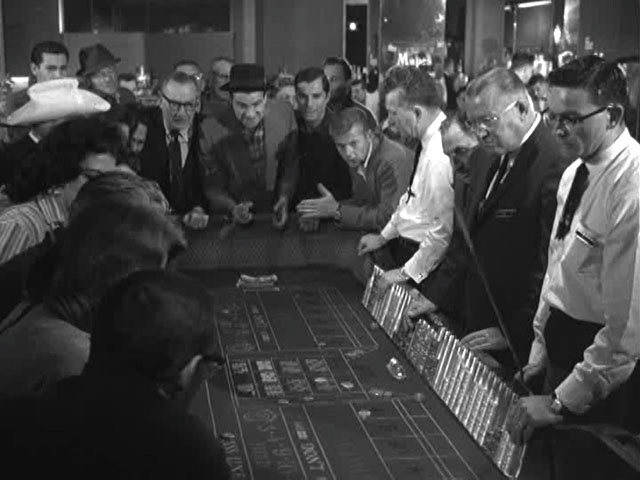
14. Walter shoots
Walter starts off by winning and then starts losing money.
He eventually loses the town's money and leaves and the other men head for their hotel room.
Buz goes to the bar and finds Walter trying to pick up two girls.
He tries to convince Walter to try again with some remaining funds, but Walter says that
a new person is needed.
The men convince Edward to become the new dice shooter.
First Walter has to show Edward how the dice game or craps works.
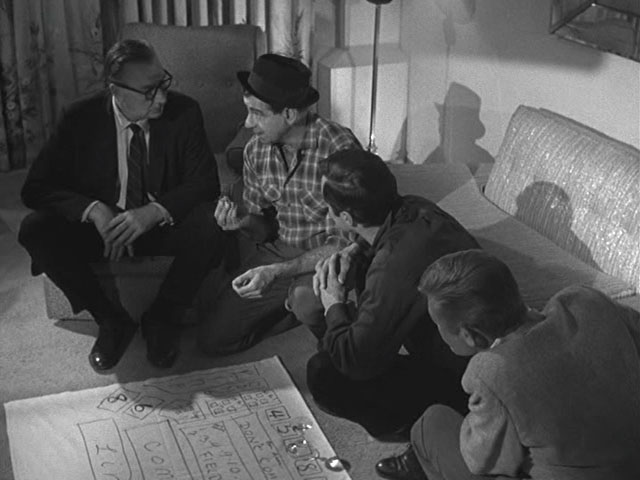
15. Instructing Edward in the game
The men head down to the casino again.
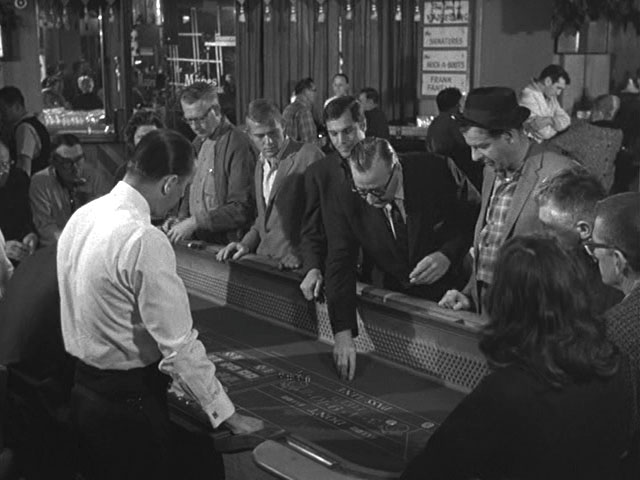
16. Edward starts shooting
Casino craps table employees watch the action.
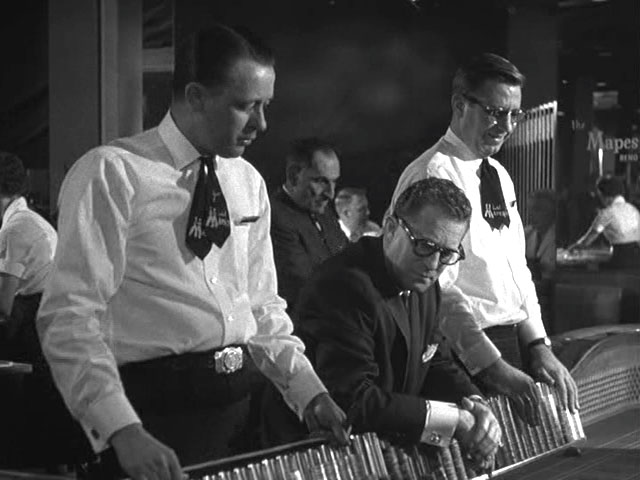
17. Mapes Casino table employees
"Western" wear was popular then, especially in Nevada.
One man wears a belt buckle with a silver dollar in it.
Edward starts winning and the pile of chips and silver starts growing.
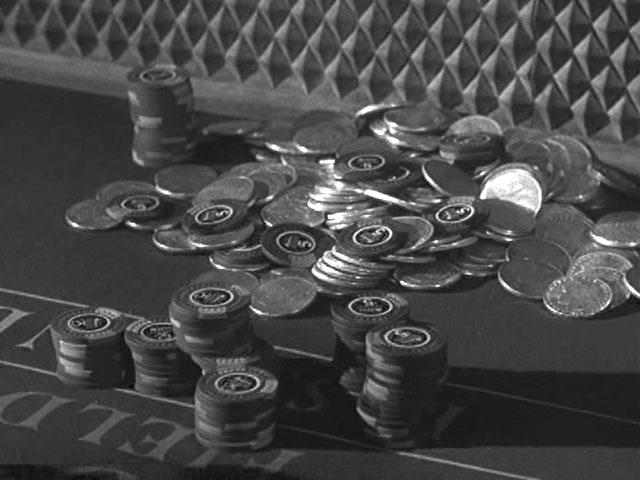
18. Pile of chips and silver dollars
Morgan and peace dollars and Mapes five-dollar chips are visible and not a credit card in sight.
Edward finds that he enjoys shooting dice.
A Mapes Hotel-Casino five-dollar chip:
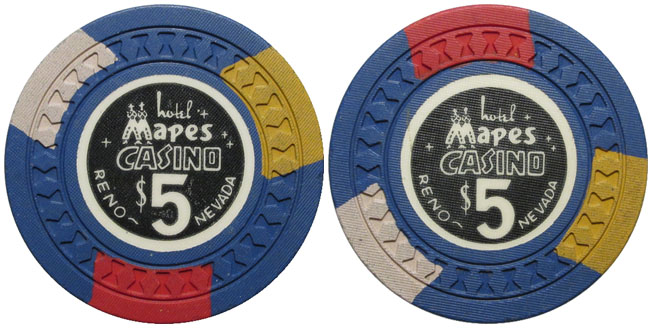
19. Mapes Hotel-Casino Reno five dollar chip
Plastic, 39 mm, 10.62 gm
Obverse and reverse:
Blue plastic casino gambling chip with red, yellow, and white stripes
Figures of two people in western dress
HOTEL MAPES / CASINO / $5 / RENO NEVADA
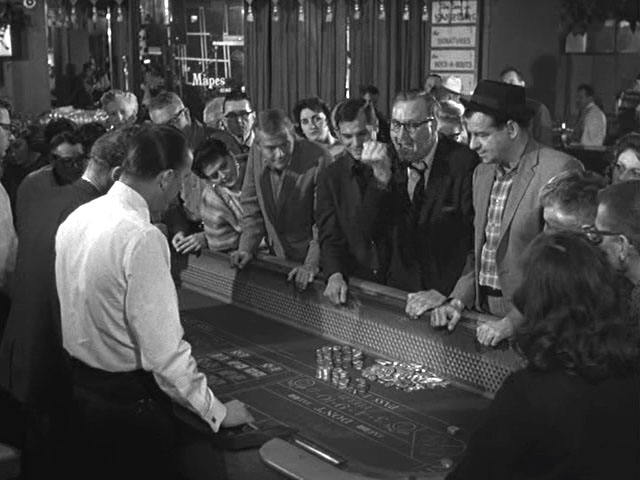
20. Edward in action
Edward starts losing money and Walter tries to talk him into quitting.
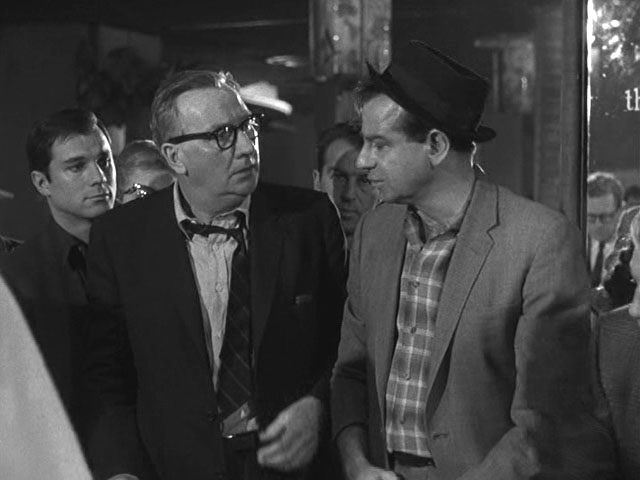
21. Walter talks to Edward
Edward comes to his senses and asks Walter to cash in the chips.
The four walk away from the casino.
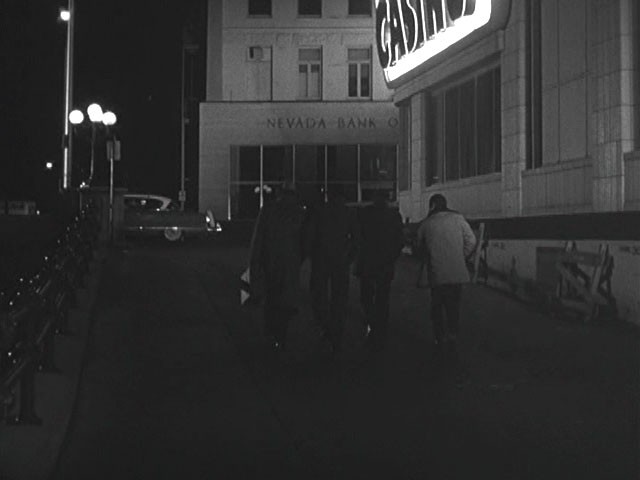
22. Mission accomplished
Cast, Directors, Writers:
Martin Milner as Tod Stiles
George Maharis as Buz Murdock
Walter Matthau as Sam Keep
Edward Andrews as Francis Oliver
Director: William A. Graham
Writers: George Clayton Johnson, Herbert B. Leonard
George Maharis as Buz Murdock
Walter Matthau as Sam Keep
Edward Andrews as Francis Oliver
Writers: George Clayton Johnson, Herbert B. Leonard
| Prev | Back | Next |